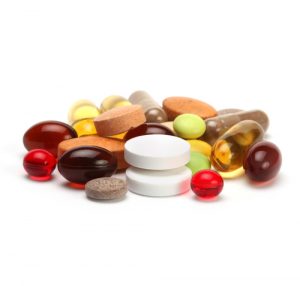Posted on September 25, 2017 by Kate Halsall
It’s a broad statement to make I know – but I had to get your attention! And I’m not lying – just passing on some information. The information in this blog reflects what one of my clients was told by her GP with regards to Vitamin D. Apparently those of us lucky enough to live in the UK will have low levels of Vitamin D because you can’t get enough from food alone and we simply don’t get enough sun. The recent stats suggest that 1 in 5 of us have Vitamin D deficiency. It’s even hit the news this week. With autumn/winter setting in, it’s certainly made me think about which supplements I’m taking!
What If I Have Low Vitamin D?
In my client’s example, she was suffering with chronic – often debilitating – joint and muscle pain – the effects can be quite serious! Of course there are people who have low levels of vitamin D and have no side effects. But in more general terms, if people around you are already starting with sniffles and coughs, then now’s the time to dose up…..a lack of vitamin D is often associated with increased autoimmunity and susceptibility to infection. One piece of research suggests if you have any of the conditions listed below, they could get worse due to a lack of vitamin D:
- Asthma
- Depression/Anxiety (including SAD)
- Lower Back Pain
- Diabetes
- Psoriasis
Jenny wrote a great blog some time ago on what else Vitamin D is used for – click here to read it.
How Much Vitamin D Do I Need?
For adults, you need 10mcg (micrograms) or 400iu (international units) of Vitamin D a day. It is possible to take too much so be careful!
And Where Am I Going To Get It From?
Between March & September the health professionals say the sun! This combined with a healthy balanced diet should provide you with enough vitamin D on a daily basis. But during Autumn and Winter, the sun is simply not strong enough for the body to create that vitamin D. You still need to stick with your healthy diet, but you may also want to consider supplements.
Foods containing vitamin D include:
- Oily fish eg salmon, mackerel
- Eggs
- Red Meat
- Mushrooms
For a more complete list click here.
Obviously, if you’re concerned you should visit your GP and see what they say. I’m not a health professional or doctor. All I’m suggesting is that this appears to be quite common, is easy to “fix” and based on some of the problems a lack of vitamin D can cause, isn’t it better to er on the side of caution? I honestly only currently use supplements for B12, but I’m now looking at this one too.
https://www.nhs.uk/news/food-and-diet/the-new-guidelines-on-vitamin-d-what-you-need-to-know/
https://www.medicalnewstoday.com/articles/318060.php


